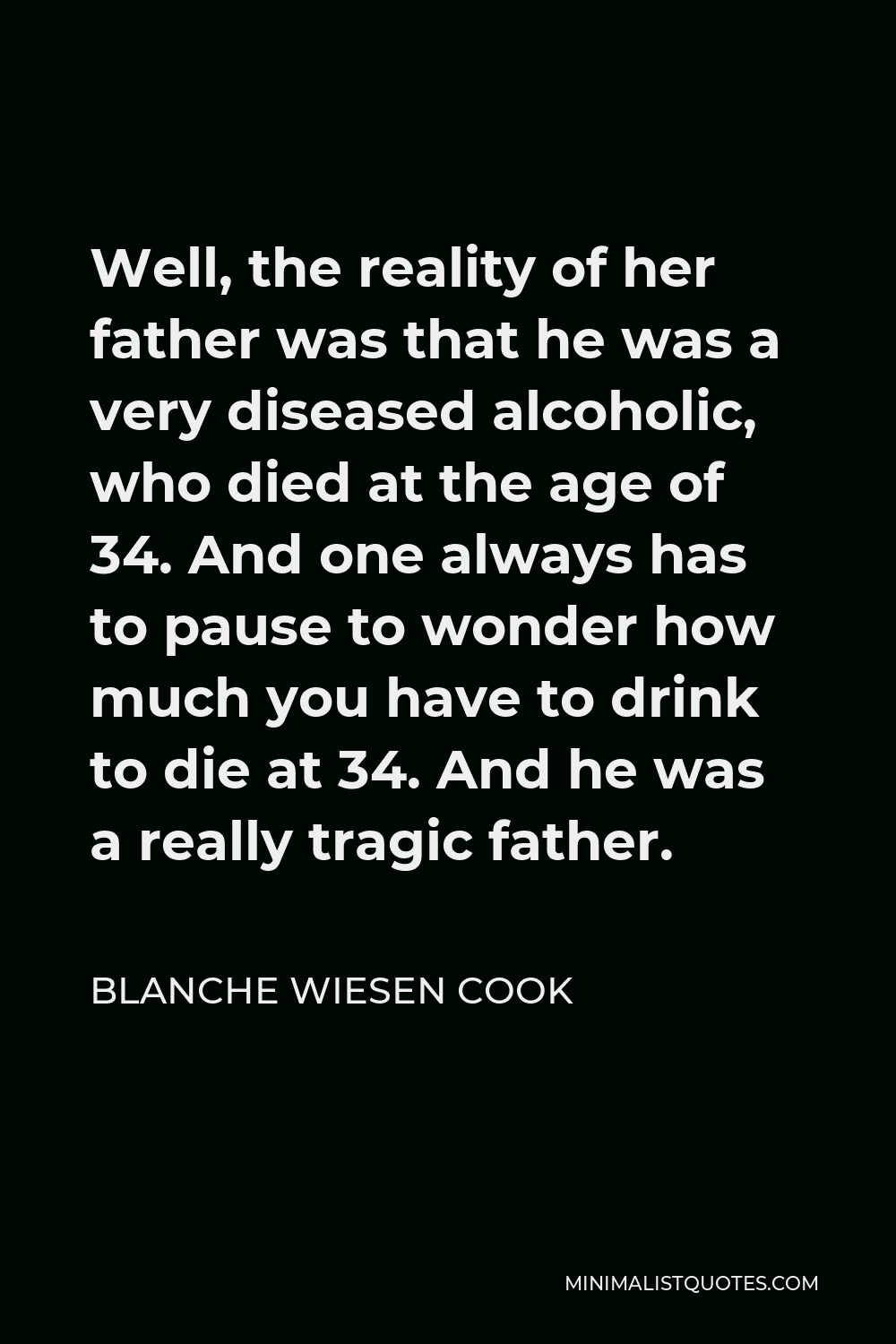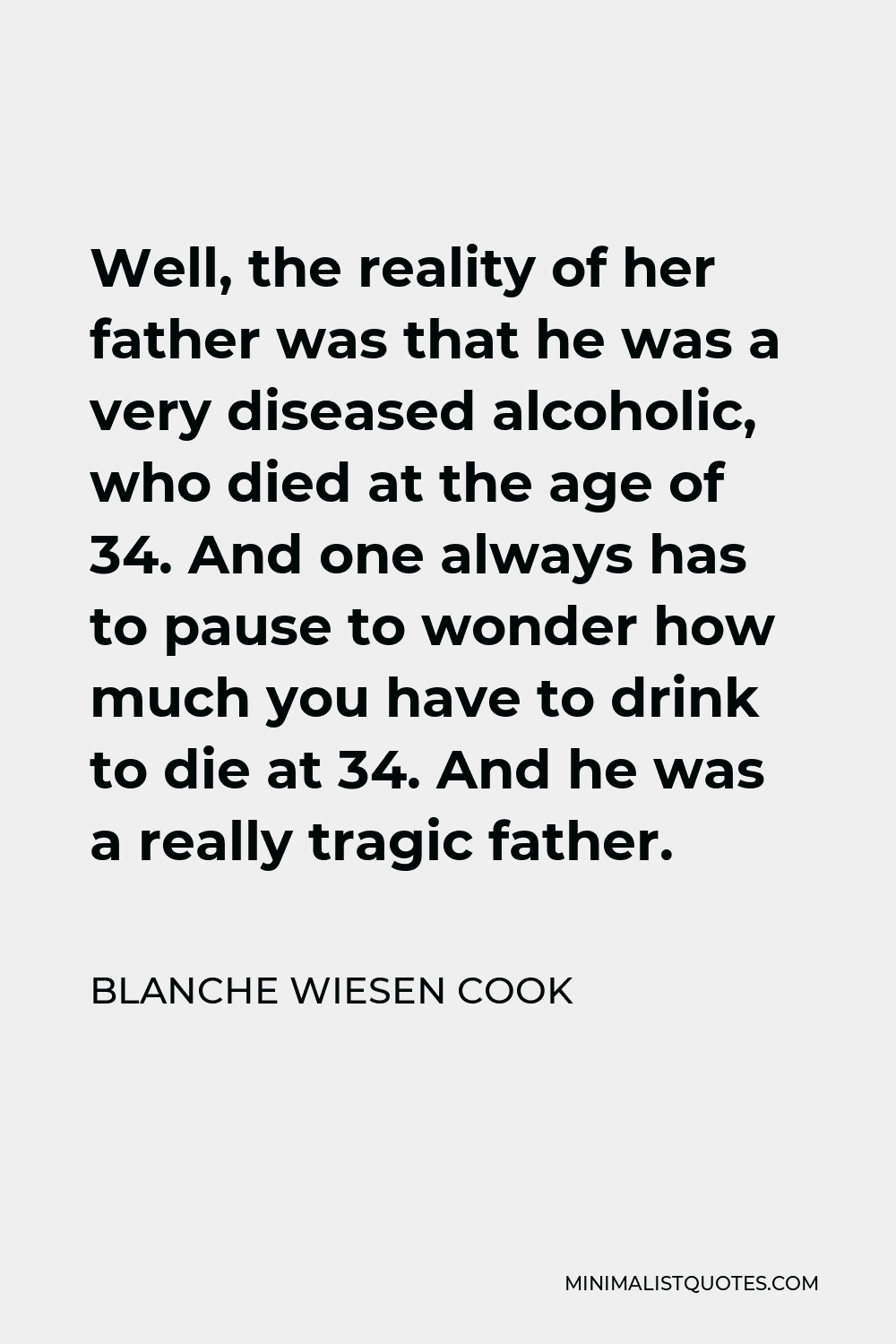I think that Hick was in love with Eleanor, and Eleanor was in love with Hick. I think it’s very important to look at the letters that are in my book, because unlike some of the recent published letters.
BLANCHE WIESEN COOKWell, the reality of her father was that he was a very diseased alcoholic, who died at the age of 34. And one always has to pause to wonder how much you have to drink to die at 34. And he was a really tragic father.
More Blanche Wiesen Cook Quotes
-







-





![Blanche Wiesen Cook Quote - And in her [Eleanor Roosevelt] letters, she writes the most, you know, fanciful letters: when we are together, and when we are reunited, and you know,](https://minimalistquotes.com/images/and-in-her-eleanor-roosevelt-letters-she-writes-th.jpg)
And in her [Eleanor Roosevelt] letters, she writes the most, you know, fanciful letters: when we are together, and when we are reunited, and you know,
BLANCHE WIESEN COOK -





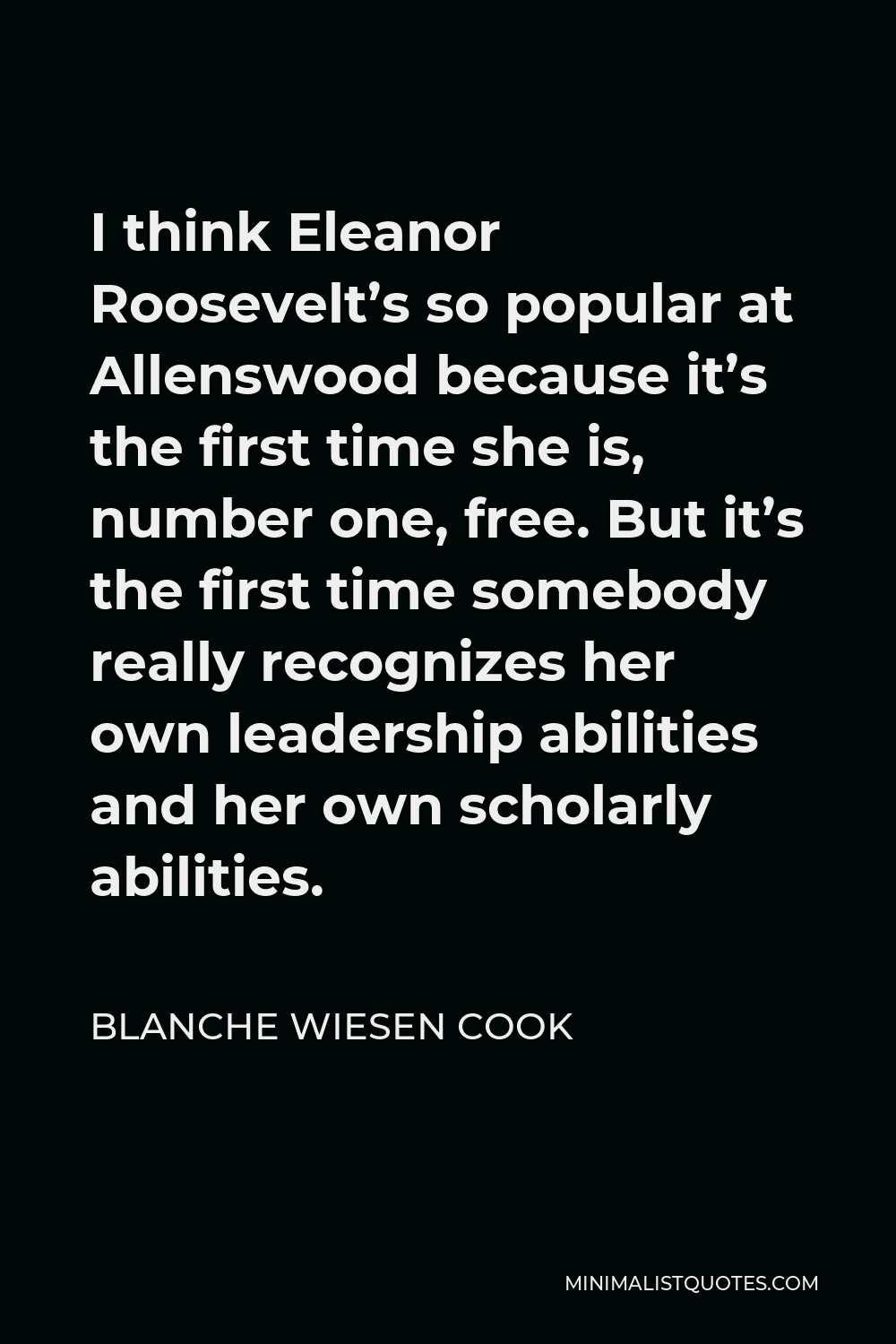
I think Eleanor Roosevelt’s so popular at Allenswood because it’s the first time she is, number one, free. But it’s the first time somebody really recognizes her own leadership abilities and her own scholarly abilities.
BLANCHE WIESEN COOK -





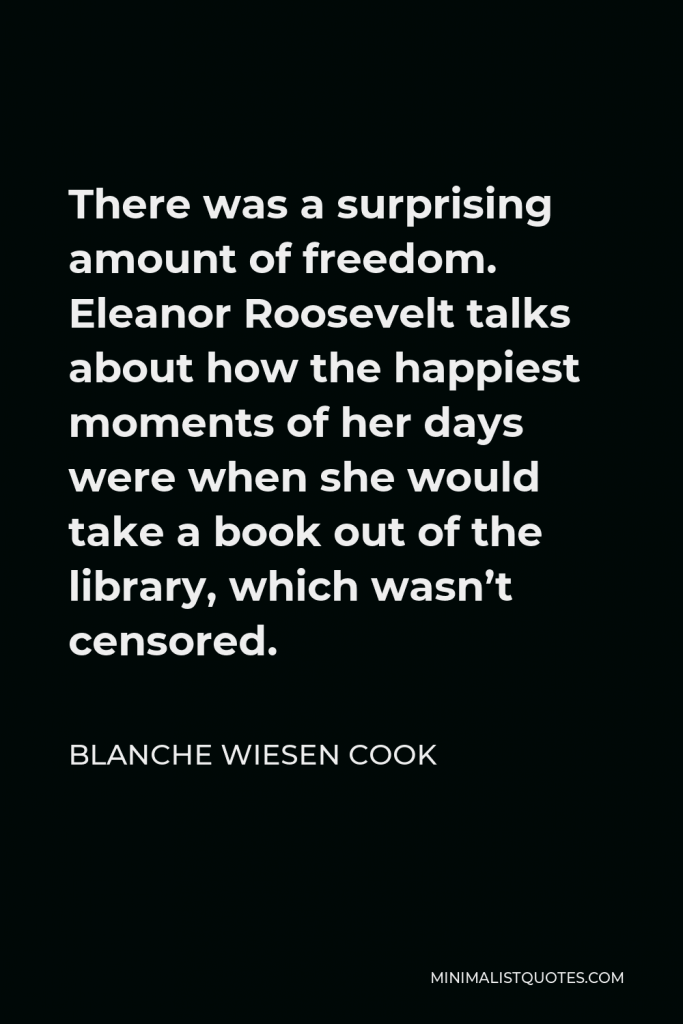

There was a surprising amount of freedom. Eleanor Roosevelt talks about how the happiest moments of her days were when she would take a book out of the library, which wasn’t censored.
BLANCHE WIESEN COOK -







Also, she spoke perfect French. She grew up speaking French. She’s now at a french-speaking school where, you know, girls are coming from all over the world. Not everybody speaks French.
BLANCHE WIESEN COOK -





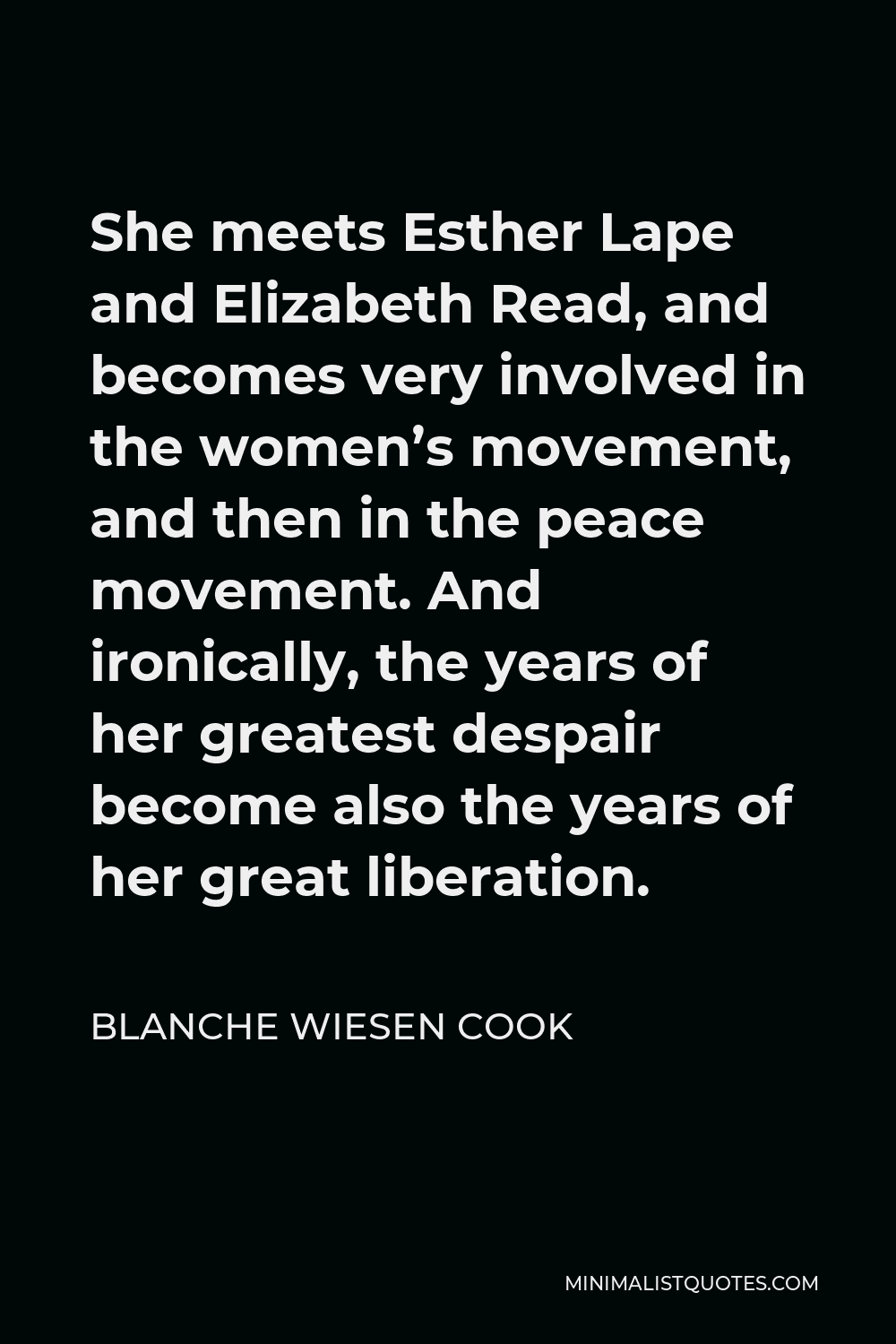
She meets Esther Lape and Elizabeth Read, and becomes very involved in the women’s movement, and then in the peace movement. And ironically, the years of her greatest despair become also the years of her great liberation.
BLANCHE WIESEN COOK -





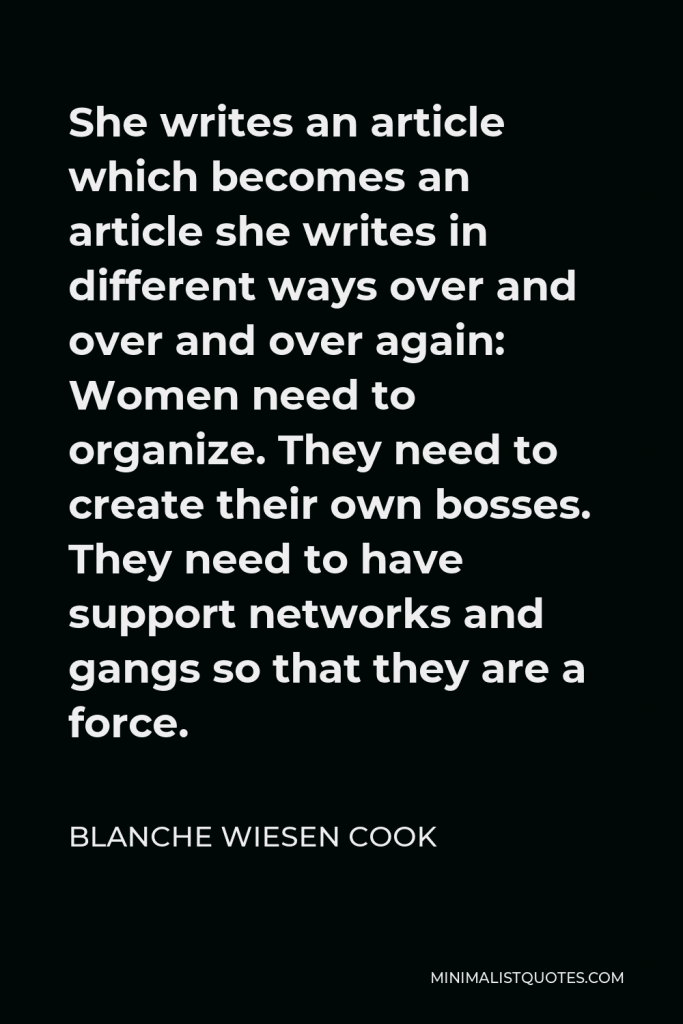

She writes an article which becomes an article she writes in different ways over and over and over again: Women need to organize. They need to create their own bosses. They need to have support networks and gangs so that they are a force.
BLANCHE WIESEN COOK -





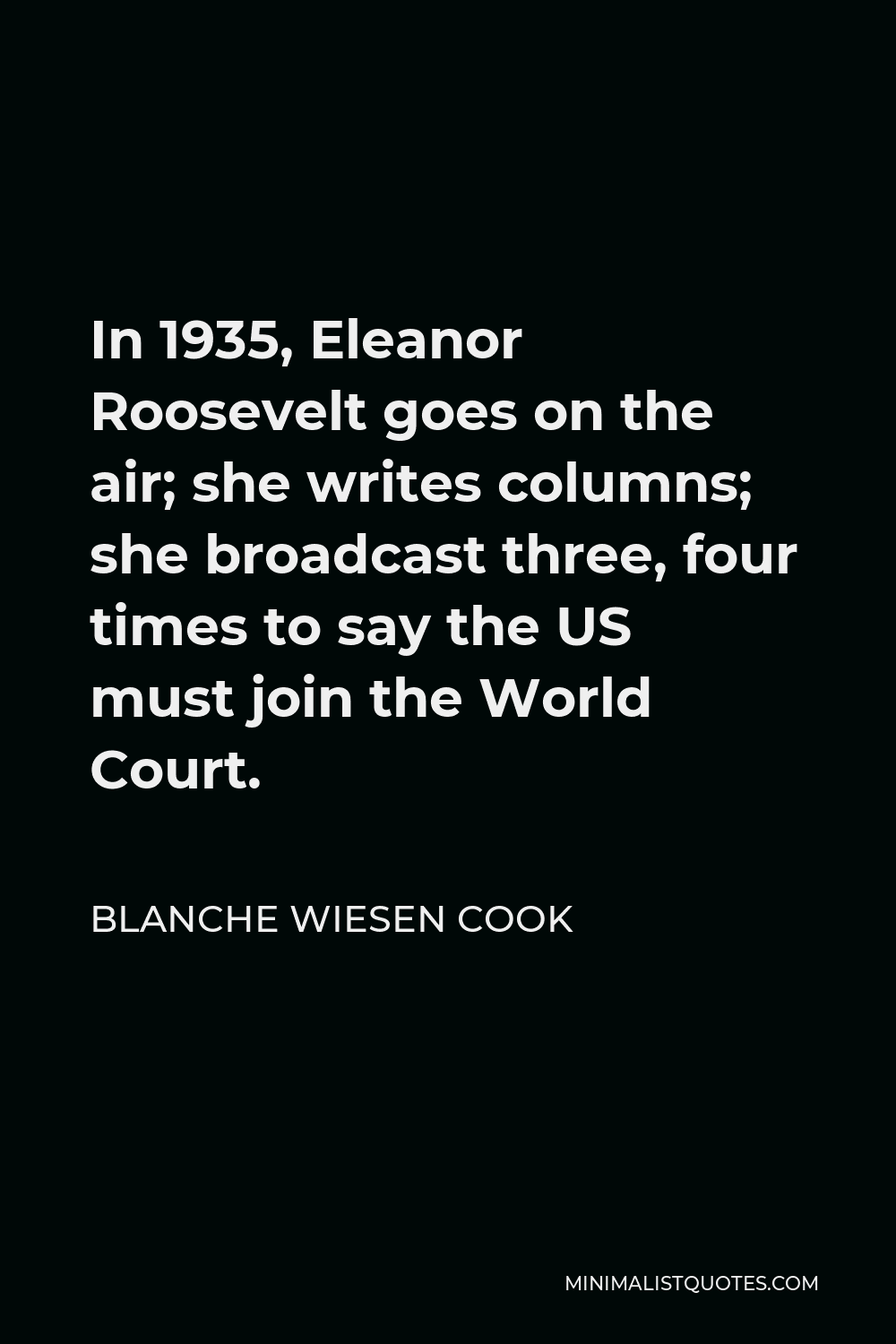
In 1935, Eleanor Roosevelt goes on the air; she writes columns; she broadcast three, four times to say the US must join the World Court.
BLANCHE WIESEN COOK -





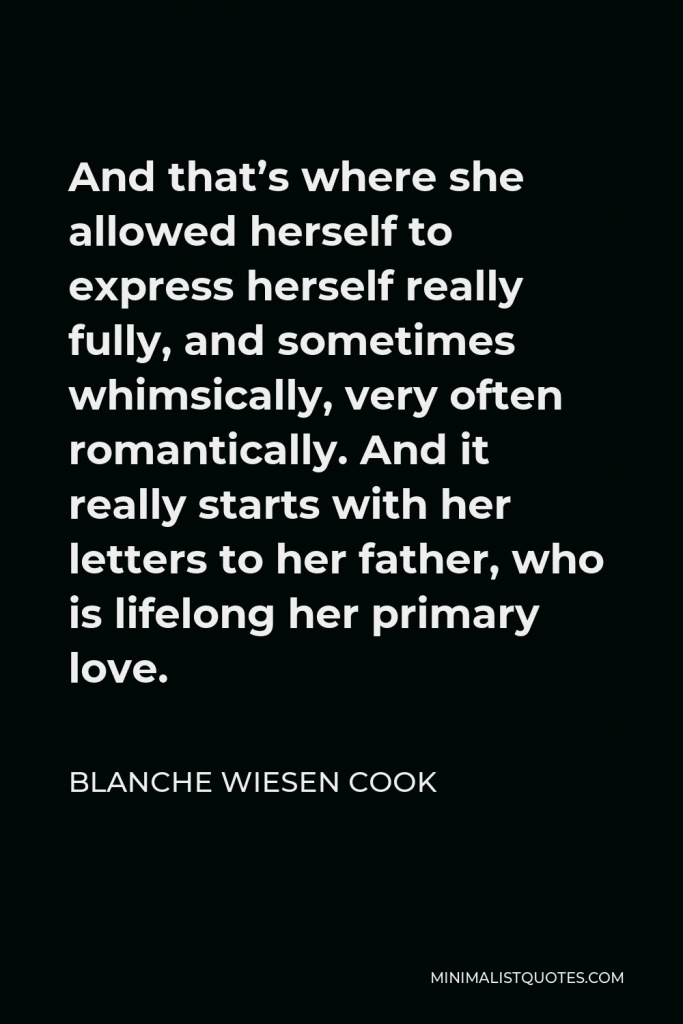

And that’s where she allowed herself to express herself really fully, and sometimes whimsically, very often romantically. And it really starts with her letters to her father, who is lifelong her primary love.
BLANCHE WIESEN COOK -





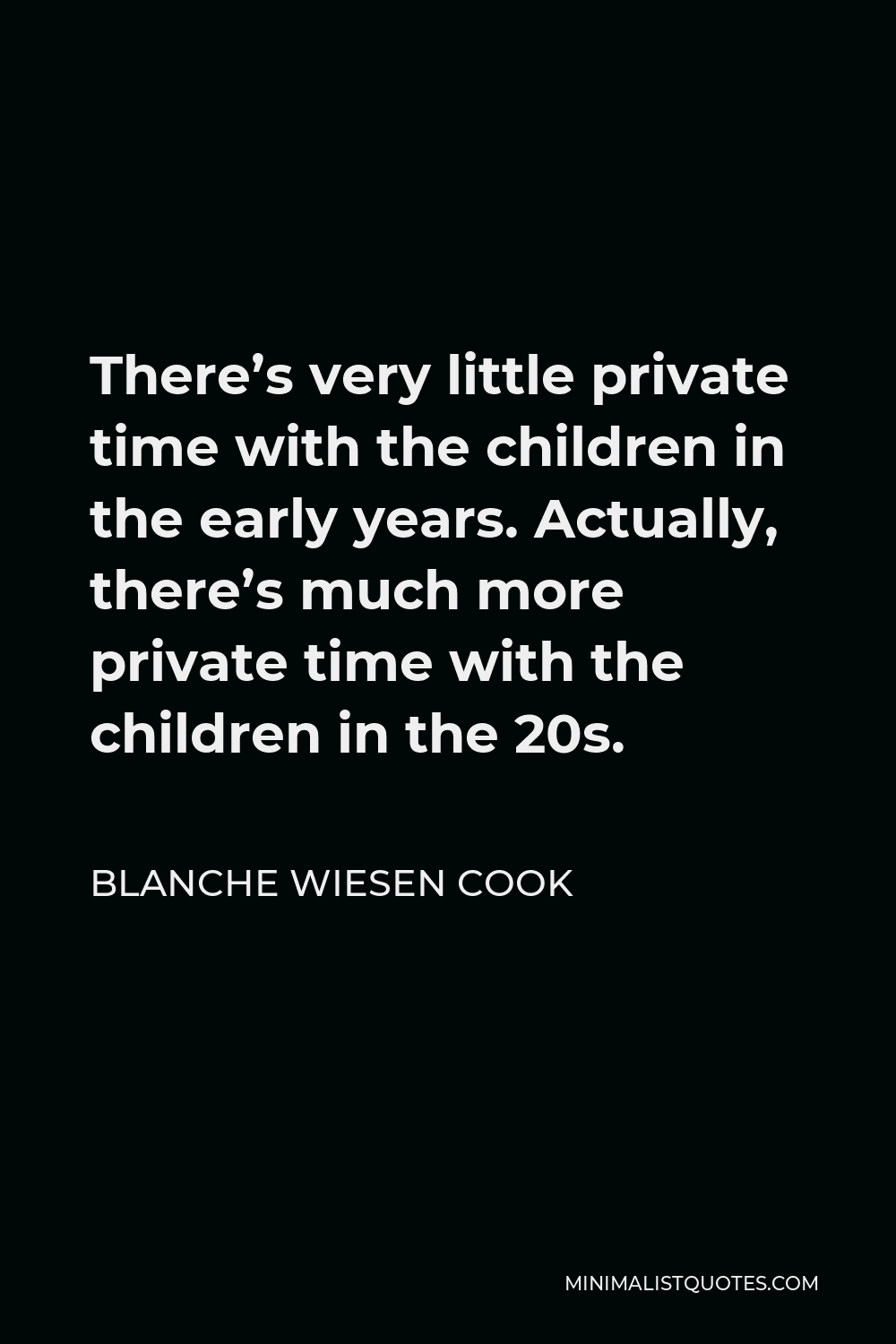
There’s very little private time with the children in the early years. Actually, there’s much more private time with the children in the 20s.
BLANCHE WIESEN COOK -





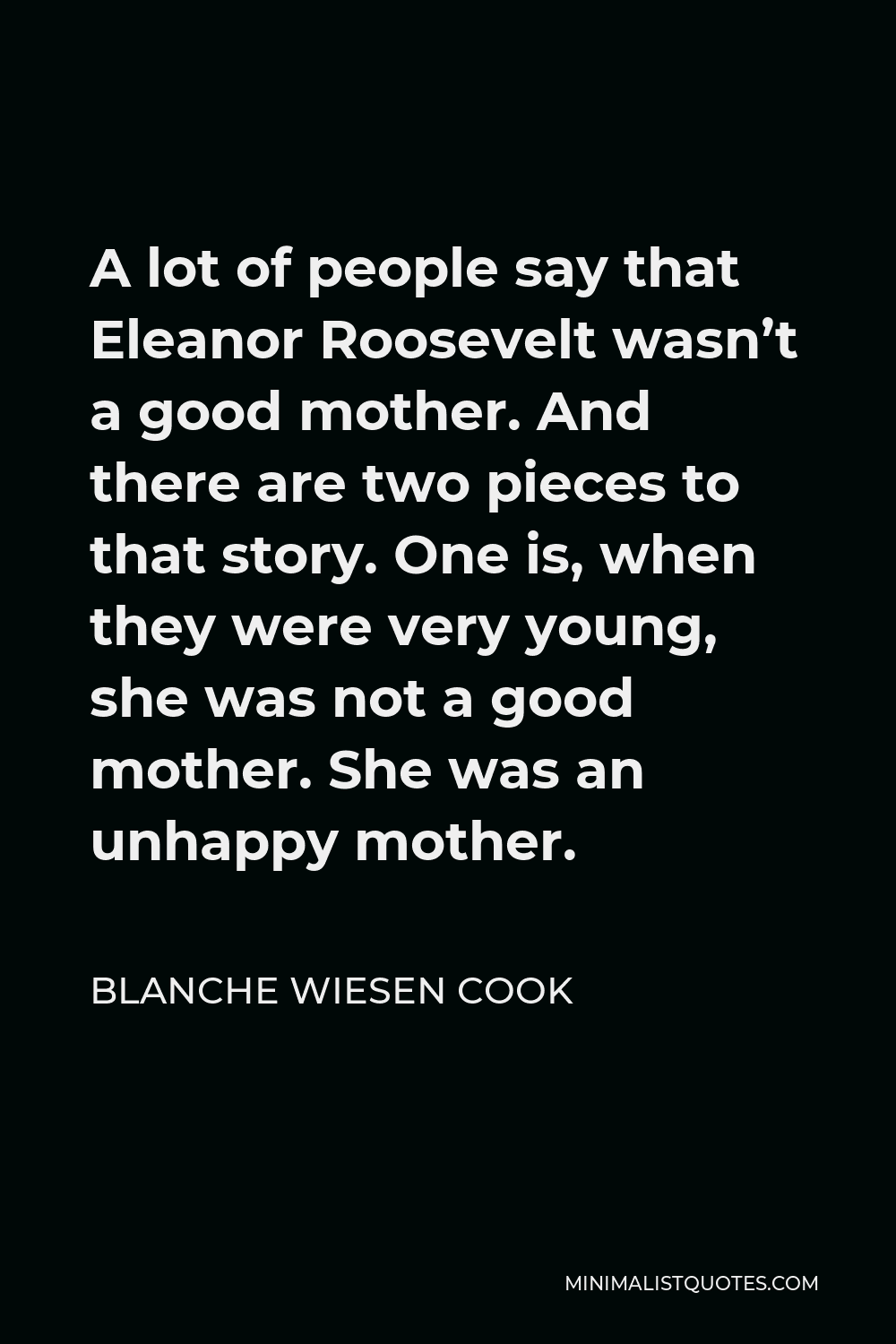
A lot of people say that Eleanor Roosevelt wasn’t a good mother. And there are two pieces to that story. One is, when they were very young, she was not a good mother. She was an unhappy mother.
BLANCHE WIESEN COOK -





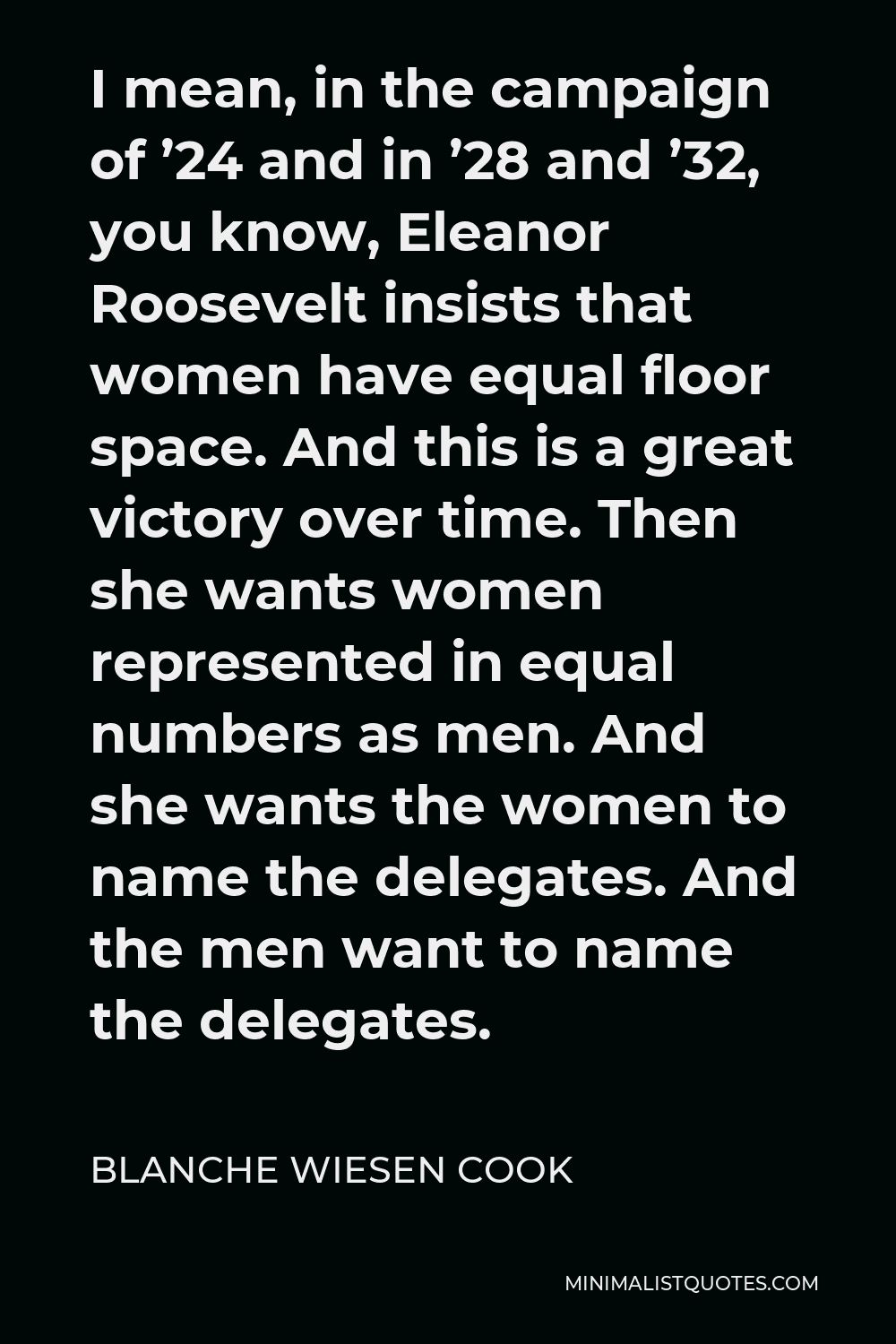
I mean, in the campaign of ’24 and in ’28 and ’32, you know, Eleanor Roosevelt insists that women have equal floor space. And this is a great victory over time. Then she wants women represented in equal numbers as men. And she wants the women to name the delegates. And the men want to name the delegates.
BLANCHE WIESEN COOK -





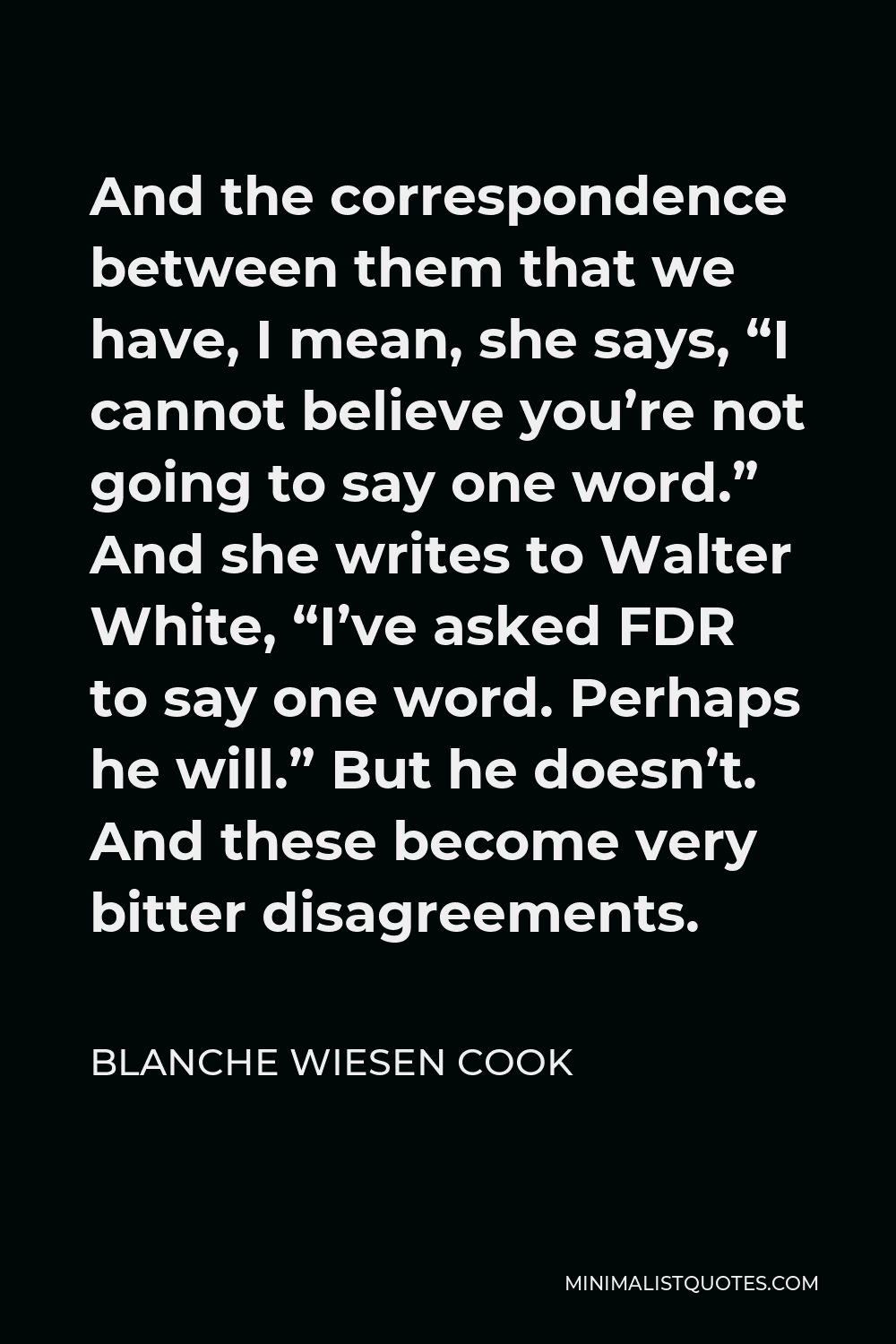
And the correspondence between them that we have, I mean, she says, “I cannot believe you’re not going to say one word.” And she writes to Walter White, “I’ve asked FDR to say one word. Perhaps he will.” But he doesn’t. And these become very bitter disagreements.
BLANCHE WIESEN COOK -





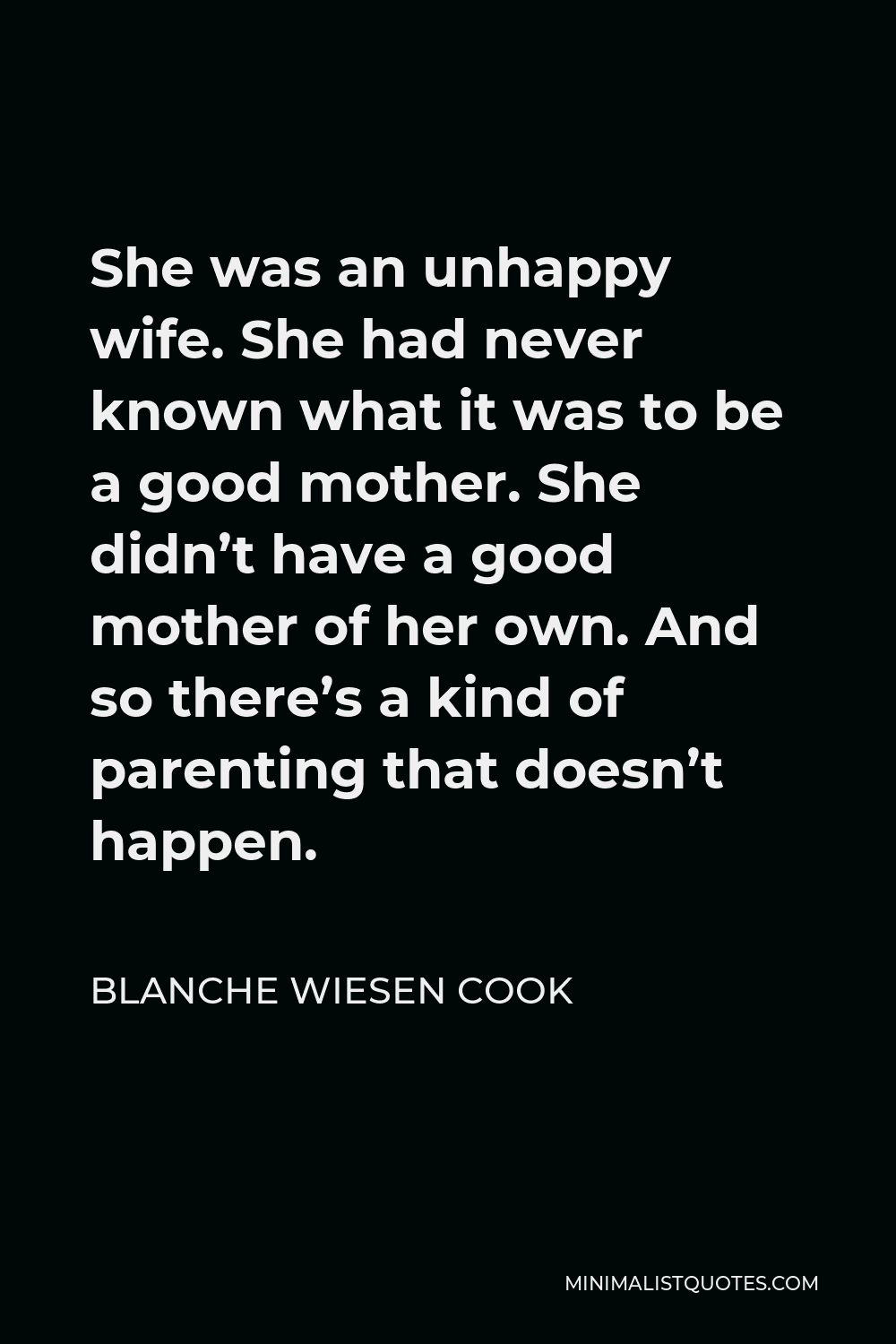
She was an unhappy wife. She had never known what it was to be a good mother. She didn’t have a good mother of her own. And so there’s a kind of parenting that doesn’t happen.
BLANCHE WIESEN COOK -





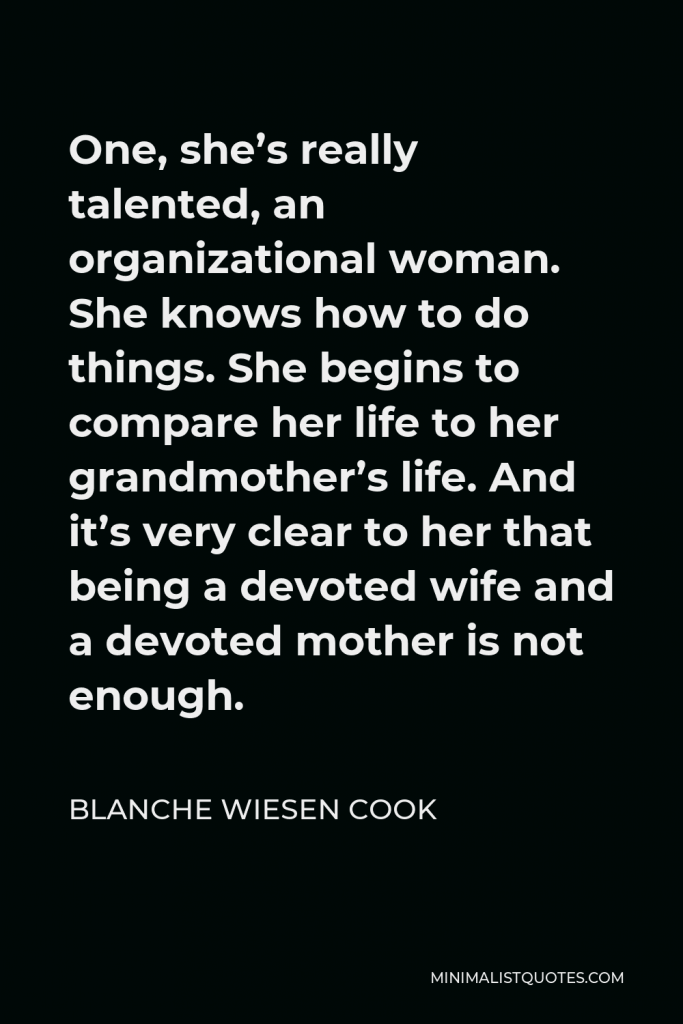

One, she’s really talented, an organizational woman. She knows how to do things. She begins to compare her life to her grandmother’s life. And it’s very clear to her that being a devoted wife and a devoted mother is not enough.
BLANCHE WIESEN COOK -





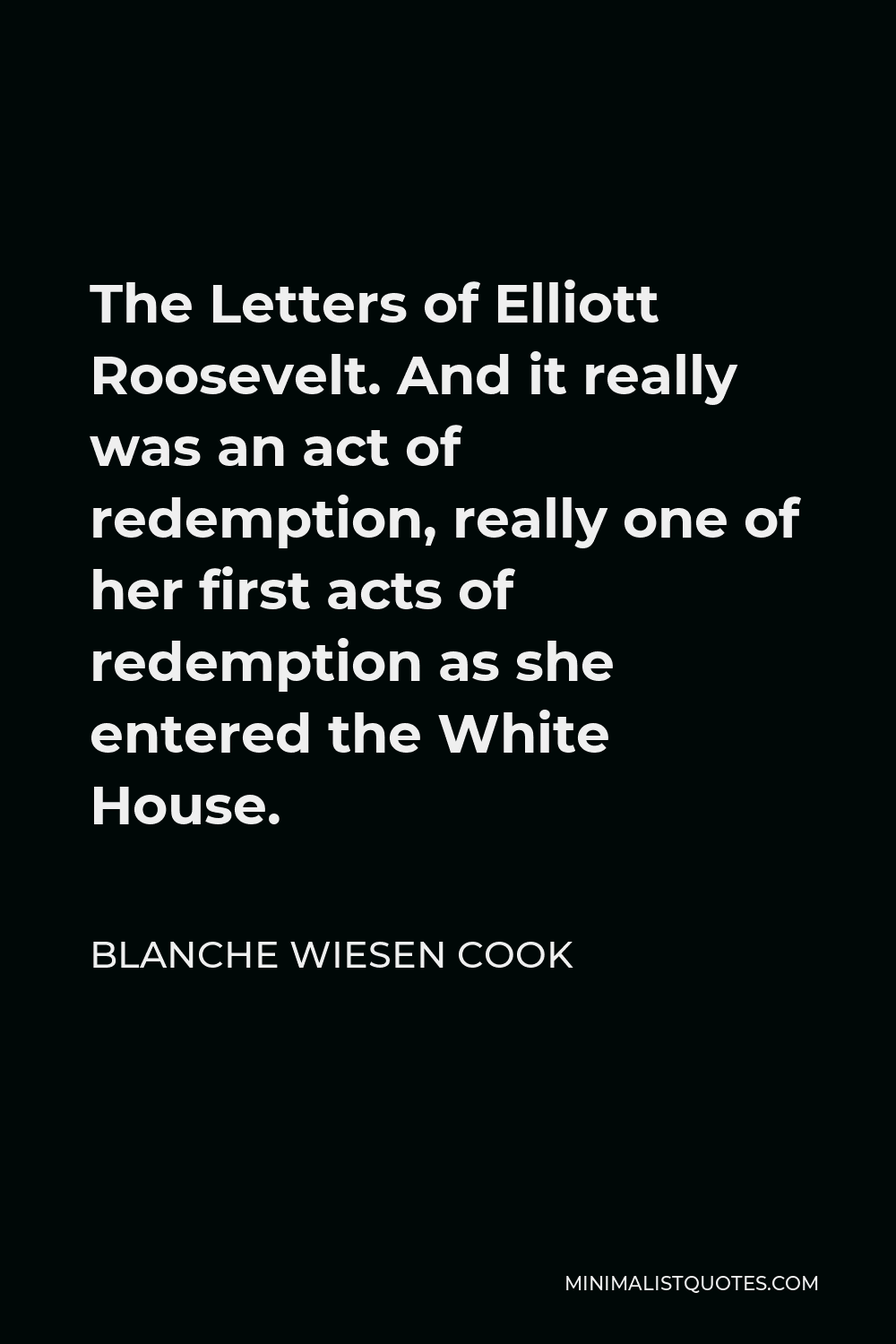
The Letters of Elliott Roosevelt. And it really was an act of redemption, really one of her first acts of redemption as she entered the White House.
BLANCHE WIESEN COOK
